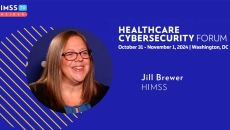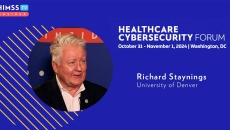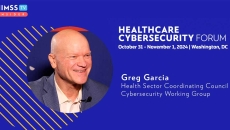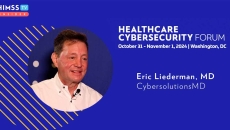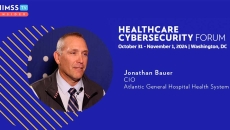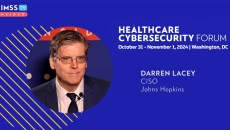Privacy & Security
New York State is mandating more stringent cybersecurity processes. Other states and the federal government may soon release similar regulations, says George Pappas, healthcare cybersecurity expert and CEO of Intraprise Health.
Patients need a safe, effective operational hospital that can ensure access to their data, says Lee Kim, senior principal for cybersecurity and privacy at HIMSS.
Only a quarter of IT leaders and executives are confident about their cyberdefense strategies, while a majority are at least somewhat confident, says Jill Brewer, market insights lead at HIMSS.
The ability to use AI to get past cyber defenses will cause a reset on the tools used to secure healthcare networks, says cybersecurity expert Richard Staynings of the University of Denver.
Patients suffer the health consequences of attacks that delay or disrupt care or result in ambulances being turned away, says Greg Garcia, executive director of the HSCC, Cybersecurity Working Group.
When hit, all hospital functions are severely impaired, including clinical care delivery, which can result in patient deaths, says Eric Liederman, CEO of CybersolutionsMD and former national leader of privacy, security and IT infrastructure at Kaiser Permanente.
Hospitals didn't have Change Healthcare on their radar as a risk when the ransomware attack affected them, says John Riggi.
Passwords don't need to be changed as often as every 90 days, but multifactor authentication is a must, says Jonathan Bauer, CIO Atlantic General Hospital Health System.
Using AI to extract data is one of the more promising areas of cybersecurity, says Darren Lacey, CISO at Johns Hopkins.
This represents a third of the population and makes the data breach the largest one known at a HIPAA-regulated entity.


